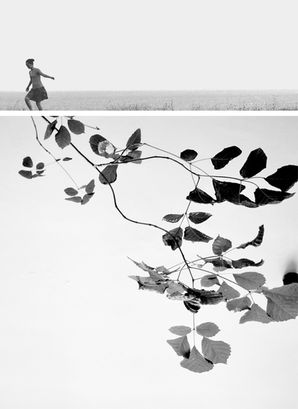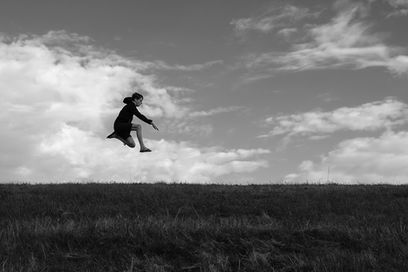
MINIMALIST IMPRESSIONISM
October 15, 2021
INTERVIEW
PHOTOGRAPHY Ixi Nijhawan
INTERVIEW Melanie Meggs
As a photographer, Ixi Nijhawan’s work has always been a reflection of the world around him. After spending time in the advertising industry, he was struck by the shocking impact it was having on the environment, and the vast quantity of items being consumed. As a result, Ixi has shifted his focus to ethical and sustainable photography, using his art to raise awareness and promote minimalism.
Through years of practice and experience, Ixi has developed an eye for capturing the beauty of the everyday, often creating abstract scenes full of vivid colours and shapes. He has a unique ability to isolate elements from their surroundings, creating minimalist yet powerful images that draw attention to their subject.
By using his craft to advocate for environmentalism and sustainability, Ixi is creating a movement that goes beyond the artwork itself. Through his art, he is encouraging viewers to become mindful of the impact their consumption has on the environment, while promoting a lifestyle of mindful minimalism. Whilst working on an ad campaign, Ixi discovered that the average household in rich countries have over 300,000 items. Working with companies (big and small), the global advertising industry has ramped up growth and demand for products that is costing the earth nearly $3 trillion in environmental, social and human health damage.
Ixi's journey as an ethical photographer is truly inspirational. His story shows us all that with creativity and passion comes great responsibility, and that through art we can create real change in our world.

“I’m very fortunate to say that photography found me. And not the other way round. In many ways, it unshackled me and let me experiment. And the more I photographed, the more I gravitated towards certain aesthetics and causes that inadvertently helped shape the ‘why’ of my photography. Which is why, you’ll find certain recurring themes in my images - minimalism and abstract impressionism.”
IN CONVERSATION WITH IXI NIJHAWAN
THE PICTORIAL LIST: Ixi please tell us about yourself. How did you become interested in photography? What does photography mean to you?
IXI NIJHAWAN: I was born in Chandigarh, which is north of India, but have little recollection of the place really as the family moved to New Delhi soon after. A few years later we shifted to Mumbai, when it was still called Bombay. That is the city where I studied and grew up and discovered the world of advertising. It wasn’t much later that I moved to Dubai and have been here since the early noughties, working in some of the finest advertising agencies in the region.
Photography was always part of my professional life, working closely with different photographers on advertising campaigns. But I only looked at it more seriously late last year when I quit my job and decided to take some time off of advertising. It was during this time that I wanted to explore art that didn’t involve putting a logo on it.
TPL: Where or how do you find your inspiration?
IXI: From the photography greats. I can spend hours pouring over their work. The craft, the details, the angles, the stories. I also enjoy scrolling through my Insta feed. So much talent out there. It’s great to see people putting so much love into photography.
TPL: Talk to us about your experience in how global advertising has impacted the environment. What would you like to see change and how can we all help to make a difference? How has this changed your own perception to how you photograph now?
IXI: Thank you for asking me that question. It’s obviously a very broad one and also quite personal. To begin with, it’s not just the global advertising industry. It’s a massive cog, sure, but it’s the whole machine we should be looking at - from the manufacturers to the advertising agencies to the big tech. They have so much data on us that they know what triggers to press and how to sell to us. We’re turning our homes into warehouses.
And it’s not like there’s a pool of unlimited resources. The limits of consumption have grown more and more visible. The Great Pacific Garbage Patch, for instance. If ever there was evidence of us trashing our planet, it’s right there. Floating. Three times the size of France. And it’s not even part of the conversation any more. It would be naive to think that profit driven companies will actually want to put limits on growth.
So to answer your question, yes, we can all do something. And we should. It’s not sustainable at the moment. Justin Rosenstein, the former engineer at Facebook, summed it up quite accurately, “We live in a world in which a tree is worth more, financially, dead than alive. A world in which a whale is worth more dead than alive.”
Which is why I’ve adopted minimalism and advocate it through my photography. Whether it’s for you or not, that’s an individual choice. But let’s make it part of the conversation at the very least.
TPL: Describe your series “Minimalist”. How did the concept come about? What do you want the viewer to take away from these images?
IXI: So this series, in a way, is the meeting point of many things that I cherish - aesthetics, values, philosophies. And it came to me when I was trying to experiment with the broader concept of minimalism in my own life - stripping away everything unnecessary and keeping just the essential. Slowly, it crept into my photography without announcing itself. If the images can evoke a sense of quiet reassurance and become a gateway to minimalism, it would be a personal triumph.
TPL: Describe your series “Abstract Impressionism”. How did the concept come about? What do you want the viewer to take away from these images?
IXI: This series is the desire to capture life in motion. How I experience the streets. Never still. People, a perpetual blur. Abstractions caught in light and shadow. And this helps me look at scenes a bit more theatrically. Everyone playing out a certain emotion or feeling in the arena of life. Ordinarily I might not remember these people once they have passed me by, but when I look at these images, I know exactly who they are and how they helped define that moment. A reminder of sorts, if you ever needed one, that our canvases can only be enriched by strangers.
TPL: What are some tips or advice you would give yourself if you started photography all over again?
IXI: It took me a while to understand what focal lengths are important for my photography. So, if anything, I would fast track that knowledge probably.
Instinct helps me identify all the creative possibilities.

TPL: Do you have any favourite artists or photographers you would like to share with us?
IXI: Susan Burnstine, Michael Kenna, Sally Mann, Daido Moriyama, Vivian Maier, Sebastiao Salgado, Ken Van Sickle, and Barbara Kruger. And then there is Edward Hopper - his paintings are such an inspiration.
TPL: When you are out shooting - how much of it is instinctual versus planned?
IXI: When I’m working on my minimalist series, it’s a combination of both really. Instinct helps me identify all the creative possibilities, and if it’s not happening in a certain way on a certain day, then I plan to make it happen the next day or the next week. As for the abstract series, it’s mostly instinctual. Even with an identical technical process, the results can vary quite a bit. And I think that’s part of its charm as well.
TPL: Does the equipment you use help you in achieving your vision in your photography? What camera do you use? Do you have any preferred lens/focal length?
IXI: Of course the equipment helps. There are certain features in the camera that make a difference to how I shoot. I’m currently shooting with a Fujifilm X-T3, but want to give Ricoh GR III a go as well. I prefer shooting wide, so 16mm or 23mm or anywhere in between (on a cropped sensor) are my preferred choices.
TPL: What are some of your goals as an artist or photographer? Where do you see yourself in five years?
IXI: I have visions of certain images I’d like to make in the future. And it will require planning as they are quite ambitious in their scope and visual detail. Beyond that, I’d like to explore more travel and landscape photography.
TPL: Are there any special projects you are currently working on that you would like to let everyone know about?
IXI: I’m currently working on a project commissioned by a zine for the abstract impressionist series.
TPL: "When I’m not out photographing, I (like to)...
IXI: Remind myself that I should be out photographing and stop being a lazy ass."

Ixi Nijhawan’s work is a reminder of the importance of sustainability and minimalism. His art is a celebration of the beauty of the everyday, and a testament to the power of photography to capture and convey meaningful messages. His work is a reminder of our responsibility to protect the environment, and an encouragement to appreciate the simple things in life. We take the opportunity to thank Ixi for sharing his insightful words and photography with us.












































